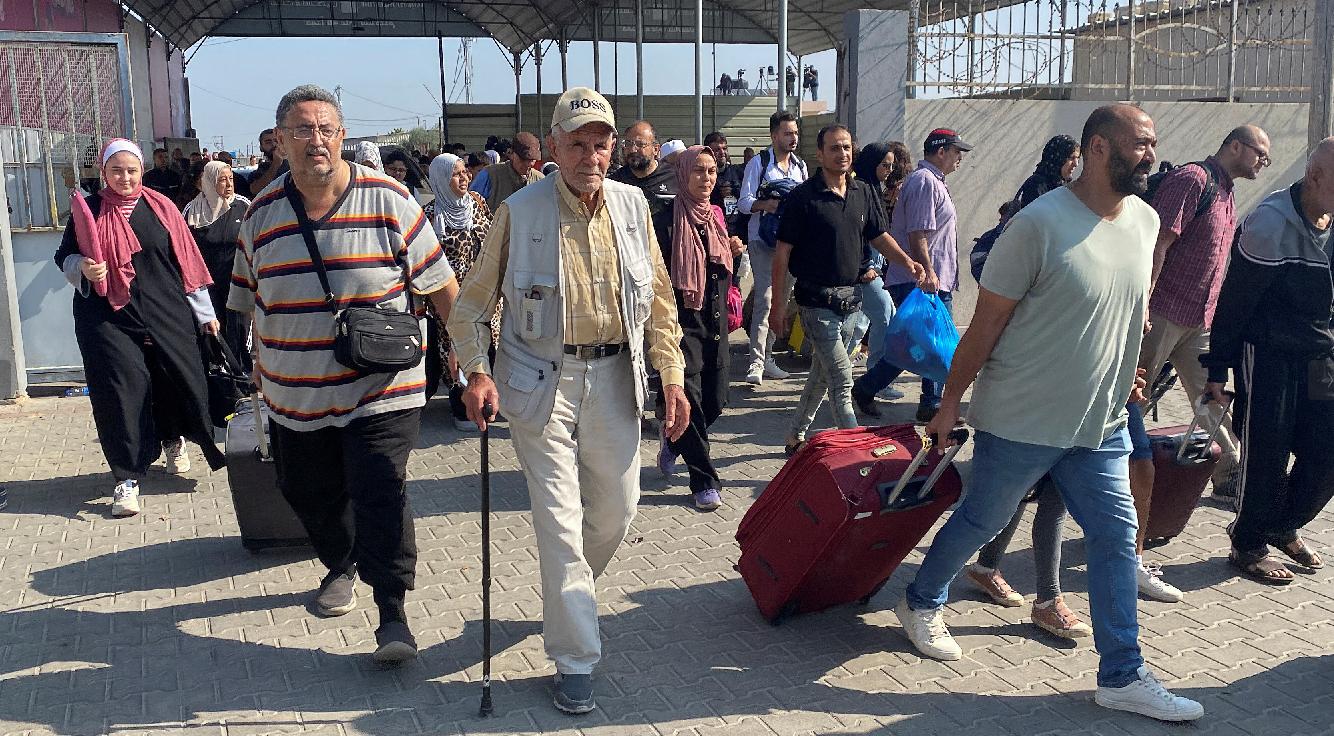The Rafah border crossing, which had been closed for over three weeks since the onslaught of the conflict, reopened on Wednesday, 1 November, to evacuate dozens of injured Palestinians in need of medical care and hundreds of foreign passport holders. The Gaza Borders and Crossings Authority announced that over 500 foreign nationals and individuals holding dual citizenship will be permitted to depart from the region. As previously mentioned, injured Palestinians requiring medical care in Egypt will also be granted permission to leave the enclave. Television crews at the Gaza border captured live images of numerous individuals and vehicles making their way through the gates toward the Egyptian side of the border, passing through the damaged terminal area. Some of those crossing were seen carrying their belongings. Aid convoys delivering urgently needed supplies to Gaza have been gradually arriving via the Rafah crossing since the previous month. However, it was only on Wednesday, 1 November, that individuals were granted permission to pass through this crossing. Foreign governments have identified passport holders from 44 different countries and 28 agencies, including UN bodies, residing in the Gaza Strip. The region, home to 2.4…
Egypt Opens Rafah Border to Injured Palestinians and Foreign Nationals
November 1, 2023




